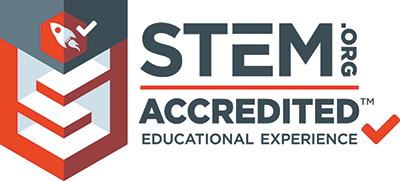Nature Of Science
Grade 6 Science Worksheets
When did Science begin?
Science began even before civilizations were formed! Many thousands of years ago people tried to explain why the sun rises and sets in a particular location or why the moon changes shape. They studied the habits of animals so they could hunt them down. They studied plants which could be used as medicine. They studied seasons and how to adapt to them. They discovered fire and then iron and learnt how to make tools. They acquired all this basic knowledge about nature around them. From these prehistoric days began the understanding of our universe and the beginning of the progress of science! The foundation of science activity is conducting research while adhering to ethical values.
Early civilizations continued the progress to learn more about the physical universe and to apply it in their daily lives. The ancient Mesopotamians, Babylonians, Chinese, Egyptians, Mayans, Indians, Arabs and Greeks, all contributed in so many different ways to the development of science. Put your knowledge to the test with this challenging 6th Grade Science Worksheet! Read each question carefully and choose the response that you feel is correct.
Schedule a Free session to clear worksheet doubts
No credit card required, no obligation to purchase.
Just schedule a FREE Sessions to meet a tutor and get help on any topic you want!
Here are some early examples from those early days until the Middle Ages –
- They invented Numerals to count and record transactions
- They relied on Astronomy to keep time and decide crop plantations
- They applied Geometry to measure land and build pyramids
- They discovered plants and herbs to make Medicine for disease prevention
- They built Scientific Models for the motions of heavenly bodies
- They developed several Theories about how the universe works

Some of the greatest scientific minds of the ancient era were – Aristotle, Ptolemy, Pythagoras, Archimedes, and many more philosophers and thinkers. Their pursuits grew from natural curiosity and thought processes to gradually become an academic discipline named “Science”.Doubts? A 6th-grade science tutor can help.
How did Modern Science begin?
Modern science as we know it today started with a Scientific Revolution during the 1500s.Renowned scientists like Copernicus, Galileo, Newton, and Leonardo da Vinci established many important discoveries and theories –
- Copernicus correctly established that the sun is the center of our universe, overturning the earlier wrongly-established thinking that the earth was the center
- Galileo used the telescope to chart the heavens mathematically
- Newton discovered gravity and established the laws of motion
- William Harvey discovered the circulation of blood
- da Vinci made important observations in many fields including human anatomy, biology, and the physics of light
All these discoveries and inventions paved the way for the Age of Reason –scientists and thinkers insisted on the use of rationality and reason to determine the truth. Many laws and rules for working in science came into existence which we follow even today.(See also: Scientific Inquiry)
eTutorWorld Understands Math Tutoring | Online Math Worksheets are Important Tools
Understanding graphs, charts, and opinion polls in a newspaper, for calculating house and car payments, and for choosing a long-distance telephone service are impossible without strong math skills …and the only way to develop strong math skills is by constant practice.
‘Practice makes a man perfect’ holds true for no other field better than for math. A middle or high school student must set aside a minimum of an hour for math every day. Other than textbooks, worksheets help you revise and understand concepts better.
Our expert tutors prepare online maths worksheets that are age and grade-appropriate. Grade-wise math worksheets for Elementary Math, Arithmetic, Pre-Algebra, Algebra, Geometry, Trigonometry, Statistics, Pre-Calculus and Calculus can be solved to improve math skills, to get ahead or to even catch up.
You may download these FREE online math worksheets in the PDF format, and then print and email us their solutions for a free evaluation and analysis by eTutorworld’smath expert tutors.
You may solve these worksheets by yourself or with your peers while studying together.
The Answer Key at the end of each worksheet allows for a self-evaluation.
Personalized Online Tutoring
eTutorWorld offers affordable one-on-one live tutoring over the web for Grades K-12, Test Prep help for Standardized tests like SCAT, CogAT, MAP, SSAT, SAT, ACT, ISEE and AP. You may schedule online tutoring lessons at your personal scheduled times, all with a Money-Back Guarantee. The first one-on-one online tutoring lesson is always FREE, no purchase obligation, no credit card required.
For answers/solutions to any question or to learn concepts, take a FREE CLASS.
No credit card required, no obligation to purchase.
Just book a free class to meet a tutor and get help on any topic you want!



Where do we use Science today?
There are many fields of science in which scientists continue to form theories, make new discoveries, and inventions. They can mainly be classified as –
- Physical sciences –astronomy, chemistry, physics, geology, meteorology
- Life sciences – botany, zoology, anatomy, physiology, genetics, medicine
- Social sciences – anthropology, archaeology, economics, psychology, sociology
Our world is built on the principles of science. Science is applied in almost all industries and offers exciting opportunities for thousands of budding, curious, youngsters in several industries such as –
- Aerospace (aircraft, spacecraft, satellites, space exploration)
- Agriculture (fishing, forestry, genetic engineering)
- Computing (computer software, artificial intelligence, cryptography, internet)
- Engineering (chemical, electrical, mechanical, computers)
- Energy (nuclear, wind, solar)
- Health (biotechnology, medicine, genetics)
- Industry (machines, manufacturing, robotics)
- Transport (automobile, motorcycle, bicycle, rail)
There are always exciting times in the field of science! What is an illustration of a science inquiry-based learning activity?

Check Point
- The progress of science began –
- In the 1500s
- During the age of reasoning
- Long before civilization began
- In modern days
- The Age of Reason began the insistence on the use of ______ and ______ to determine the ______.
- Which of these is NOT a field of science?
- Anthropology
- Chemistry
- Literature
- Sociology
- Meteorology
- Science is applied to which of the following industries?
- Engineering
- Health
- Energy
- Aerospace
- All of the above
Answer Key
- c) Long before civilization began
- Rationality, Reason, Truth
- c) Literature
- e) All of the above
Schedule a Free session to clear worksheet doubts
No credit card required, no obligation to purchase.
Just schedule a FREE Sessions to meet a tutor and get help on any topic you want!
Pricing for Online Tutoring
| Tutoring Package | Validity | Grade (1-12), College |
|---|---|---|
| 5 sessions | 1 Month | $139 |
| 1 session | 1 Month | $28 |
| 10 sessions | 3 months | $269 |
| 15 sessions | 3 months | $399 |
| 20 sessions | 4 months | $499 |
| 50 sessions | 6 months | $1189 |
| 100 sessions | 12 months | $2249 |
6th Grade Free Worksheets
- Inquiry process
- Nature of Science
- Scientific Inquiry
- Inquiry, Analysis and Problem Solving
- Ethical Practices
- Science and Society
- Biotic and Abiotic Factors
- Impact of Organisms
- Adaptation
- Spheres of Earth
- Natural Resources
- Environmental Issues
- Conservation of Earth
- Understanding Technology
- Abilities To Do Technological Design
- Structure of Earth
- Solar System
- Rocks and Fossils
- Earth Systems
- Plate Tectonics
- Evolution
- Magnetic Field of Earth
- Geologic Time
- Materials and Processes That Shape a Planet
- Astronomy
- Ecology
- Energy
- Kinetic and Potential Energy
- Energy Transfer
- Matter and its Structure
- States of Matter
- Physical and Chemical Changes
- Force and Motion
- Electricity and Magnetism
- Wave Interactions
- Sound
- Light
- Introduction to Life Science
- The Origin & History of Life On Earth
- Plant and Animal Cells
- Parts of a Cell
- The Cell Cycle
- How Living Organisms Get Energy
- Classification of Organisms
- How Plants Grow & Reproduce
- The Human Respiratory System
- The Human Cardiovascular System
- The Human Digestive System
- The Human Endocrine Systems
- The Human Nervous System
- The Human Muscular System
- The Human Skeletal System
IN THE NEWS

Our mission is to provide high quality online tutoring services, using state of the art Internet technology, to school students worldwide.
Online test prep and practice
SCAT
SSAT
ISEE
PSAT
SAT
ACT
AP Exam
Science Tutoring
Physics Tutoring
Chemistry Tutoring
Biology Tutoring
Math Tutoring
Pre-Algebra Tutoring
Algebra Tutoring
Pre Calculus Tutoring
Calculus Tutoring
Geometry Tutoring
Trigonometry Tutoring
Statistics Tutoring
Quick links
Free Worksheets
Fact sheet
Sales Partner Opportunities
Parents
Passive Fundraising
Virtual Fundraising
Our Expert Tutors
Safe and Secure Tutoring
Interactive Online Tutoring
After School Tutoring
Elementary School Tutoring
Middle School Tutoring
High School Tutoring
Home Work Help
Math Tutors New York City
Press
©2022 eTutorWorld Terms of use Privacy Policy Site by Little Red Bird
©2022 eTutorWorld
Terms of use
Privacy Policy
Site by Little Red Bird






